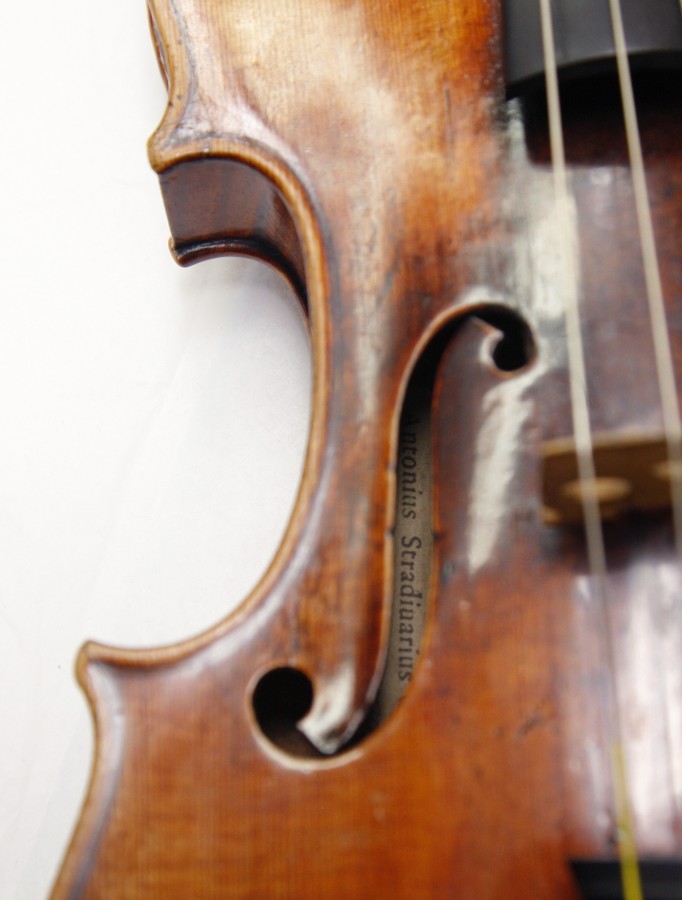Police in Milwaukee have recovered “Lipinski” – a 300-year-old Stradivarius stolen last month from a concertmaster as he was walking to his car with the rare violin.
The Milwaukee Journal Sentinel, quoting law enforcement officials, says the instrument has been found:
“Milwaukee police have arrested three suspects in connection with the theft … two men, ages 42 and 36, and a woman, 32 — were arrested Monday morning at their respective Milwaukee residences and remained in police custody Wednesday. One of the suspects has been linked to a prior art theft.”
On Friday, an anonymous donor offered a $100,000 reward for the return of the violin, which is estimated to be worth at least $5 million.
“This is not something that can easily be disposed of at some future date,” Milwaukee Police Chief Edward Flynn, told a news conference on Wednesday. “It’s not valuable for a thief. It’s only valuable to a collector.”
The violin, made in 1715, had been on indefinite loan to Frank Almond, concertmaster of the Milwaukee Symphony Orchestra, when it was stolen from him last week. According to Reuters, the culprits “used a stun gun on the musician after a concert in suburban Milwaukee.” The Associated Press says the current owner’s name has not been made public.
Stefan Hersh, a Chicago-based violin curator who helped restore the Lipinski after it was removed from a storage vault in 2008, is quoted by the AP as saying that Almond carefully guarded the instrument and understood its historical significance.
“He had a special case made for it, he kept it highly protected in his car, he never let it out of his sight,” Hersh said. “As a performer nothing shakes him, but after the theft he was highly shaken. I’ve never known him like that.”
Roughly half of the estimated 1,200 violins made by Antonio Stradivari (1644-1737), who lived and worked in Cremona, Italy, are believed to have survived. They are prized for their superb tonal qualities. Such renowned violinists as Fritz Kreisler, Joseph Suk and Yehudi Menuhin, have owned them. Stradivarius and his associates also made violas, cellos, mandolins and guitars.
“Lipinski” is so named for a previous owner, Polish violinist Karol Lipinski. The instrument was also owned by famed virtuoso and composer Giuseppe Tartini.
The theft is not the first time a Stradivarius has gone missing: In 1967, David Margetts lost the “Duke of Alcantara,” made in 1732, and spent the next 27 years looking for it before it was recovered. And two violins by Stradivari were stolen in Manhattan, one from a the back of a Rolls-Royce and another, in 1996, from the apartment of its 91-year-old owner.
Although the Stradivarius has enjoyed a reputation among violin aficionados as the top luthier of all time, instruments made by the Guarneri family, contemporaries of Stradivari, are regarded by some as equal, or nearly equal, to their more famous rivals.
Update at 2:20 p.m. ET:
At a news conference on Thursday, law enforcement officials confirm that the violin has been recovered from an attic in a Milwaukee home and will be returned after it’s inspected by experts.
“We have very strong confidence that the violin is fine,” said Mark Niehaus, the president and executive director of the Milwaukee Symphony Orchestra.
Milwaukee County District Attorney John Chisholm says at least one of the three suspects arrested could be charged as soon as Friday.
Police Chief Flynn said one of the suspects has a previous art theft conviction: “It appears we had a local criminal who had an interest in art theft and was smart enough to develop a plan for a robbery,” Flynn says.
“Beyond that, we don’t know what his motive was,” he says.
9(MDAxNzk1MDc4MDEyMTU0NTY4ODBlNmE3Yw001))


